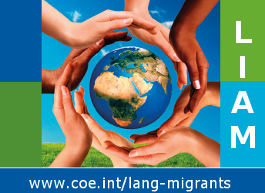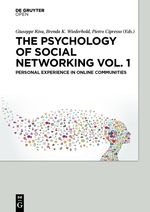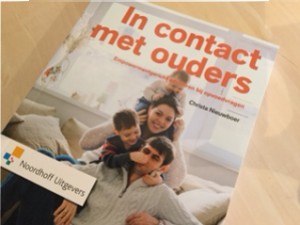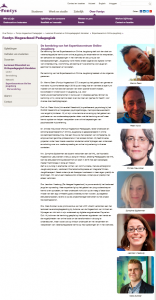 In May/June 2017, I contributed to a literature review on out of school children for a UNICEF-project.
In May/June 2017, I contributed to a literature review on out of school children for a UNICEF-project.
Categorie archieven: Research
Perspectives of migrant mothers
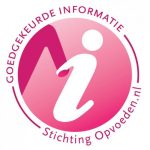 Working on an assignment for Stichting Opvoeden, a Foundation which validates online parenting information in the Netherlands.
Working on an assignment for Stichting Opvoeden, a Foundation which validates online parenting information in the Netherlands.Progress in proficiency and participation: an adult learning approach to support social integration of migrants in Western societies
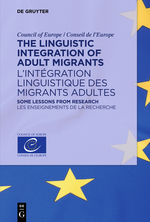 This book reflects the contributions to a conference on Linguistic Integration of Adult Migrants (Council of Europe, 2016).
This book reflects the contributions to a conference on Linguistic Integration of Adult Migrants (Council of Europe, 2016).
Chapter 4, p. 201-206
Abstract:
Educational courses that exist to support migrants in their efforts to participate in a host society should be properly designed with pedagogical expertise. In this paper, we clarify basic principles of adult learning, using the Themis method as an example. Instead of a fixed curriculum which aims to teach dominant and stereotypical cultural habits, a participatory approach fosters the development of new kinds of awareness and new ways of coping with the differences between cultures, and leads to more profound results in terms of self-confidence, participation, empowerment and language proficiency.
Christa Nieuwboer & Rogier van ’t Rood
Nieuwboer, C.C. & Rood van’t, R. Progress in proficiency and participation. An adult learning approach to support social integration of migrants in western societies. In: Beacco, J.-C., Little, D., Krumm, H.-J. and Thalgott, Ph. (eds.) (2017), The Linguistic Integration of Adult Migrants: Some Lessons from Research. Berlin: De Gruyter Mouton in cooperation with the Council of Europe.
Position paper on civic integration of adult migrants
In this position paper, we describe the theory-base of principles of this effective pedagogical approach and discuss assumptions of adult learning and civic integration in order to define constructive future directions.
Chapter: Peer and professional online support for parents
The Internet provides a popular and convenient source of information and support on parenting, offering many opportunities for both peer and professional support. Recent studies have also shown that both parents and children can benefit from online parenting support.
In this chapter, we describe the current variety of online services for parents, distinguishing between peer support and professional support. Specifically we will focus on the design characteristics of these web-based resources. Since Internet technology is still rapidly developing, many new opportunities for social networking are available. The provision of multilayered interaction (many-to-many, one-tomany, one-to-one) and the use of multiple components in websites may enhance the way parents feel supported. Also, training can be added to online programs, which aims to change parental knowledge, behavior and attitude. Furthermore, we discuss experimental results from recent meta-analytic study on the effects of online parental education.
Providing an overview of the past decade, we discuss two major trends which give direction to future research and development: missing aspects of research on online social networking and inspiring opportunities for online professional support for parents.
Christa Nieuwboer
Ruben Fukkink
A pedagogical participatory method to social integration
One of the most relevant topics for language learning for migrants is parenting. It is also a topic full of perspectives, feelings and choices. It is therefore uniquely fitting to develop a civic integration and language course using parenting as one of the main themes. Taking the most relevant themes and daily life as the starting point for social integration, and using creative didactic methods, IDEAL/Themis has shown increased levels of language acquisition and participation, even in participants with no formal learning experience.
Thursday March 31, 2016.
Participatory adult learning methods are well-known in developing countries, but they are lacking in the array of integration programmes in Europe. Most linguistic oriented courses are not
suitable for low educated and illiterate migrants without work, which leaves certain vulnerable groups deprived of adequate support for social integration. Such courses lead to course-blocking, frustration and low self esteem.
The pedagogical approach of IDEAL is fundamentally different from linguistic courses and has two imperatives: learning language that matters and exposing learners to different perspectives on topics that are highly relevant to them, such as health and parenting. The programme fosters change towards social integration and tolerance for diversity, which is feasible through sharing narratives and role modeling.
Evaluation shows that participants’ language acquisition and their participation level have improved after completing the programme.
Find our presentation here: Presentation Council of Europe
Book of Abstracts LIAM symposium
Supporting migrant mothers in their social integration, taking a participatory didactic approach: we will present our findings during the European conference.
THE LINGUISTIC INTEGRATION OF ADULT MIGRANTS: LESSONS FROM RESEARCH
A symposium organised by the Council of Europe
Venue: Strasbourg
Dates: 30 March – 1 April 2016
You can access the Book of Abstracts here. (see p. 18)
Learning language that matters. On social integration.
Background: Courses for migrants in Europe are mostly aimed at literacy in western languages as a means for participation in society. These curricula are not suitable for migrants without previous basic education, which leaves groups of migrants vulnerable to alienation and without support for social integration.
Method: The IDEAL-programme (Integrating Disadvantaged Ethnicities through Adult Learning), which takes a participatory didactic approach and in which daily personal and family life is the starting point for learning, was provided and evaluated in the Netherlands and Sweden in 2011–2013. The participants (N = 16) were migrant mothers of Berber and Arabic origin without formal educational experience. The teachers shared the same background and served as role model facilitators and social brokers.
Results: Through exploring their personal narratives, the participants showed new insights,skills, and attitudes on the topics of communication, health and parenting. All participants showed progress in language acquisition and participation in society. The Dutch group of migrant mothers reported to use less physical punishment and threats to their children, and to practise more positive parenting skills instead.
Discussion: Literacy oriented programmes for social integration are not suitable for all migrants and do not encourage acculturation. The proposed method offers a feasible alternative, so that migrants may be more adequately supported in their efforts for social integration in receiving societies. In order to advance the future development of participatory programmes for civic education, several key intervention design principles and political conditions are discussed.
Read our open access article in the Journal of Intercultural Communication:
Learning Language that matters, a pedagogical method to support migrant mothers without formal education experience in their social integration in Western countries.
Christa Nieuwboer & Rogier van ’t Rood (feb. 2016).
Nieuw boek: In contact met ouders
Tal van beroepskrachten komen in contact met ouders en in toenemende mate wordt van hen verwacht dat zij, als onderdeel van het sociaal netwerk van gezinnen, adviseren of ondersteunen bij opvoedvragen. Dit boek laat zien hoe je dat op een laagdrempelige, hartelijke en krachtgerichte manier kunt doen. Samen met een ouder naar nieuwe mogelijkheden zoeken, zodat er (bij beiden!) meer zelfvertrouwen, vaardigheden en inzicht ontstaan. Het boek is vlot leesbaar, speels vormgegeven en geeft tal van praktische tools om met ouders in gesprek te gaan. Het biedt laagdrempelige toegang tot kennis die door middel van een promotie-onderzoek naar empowermentgerichte online opvoedingsondersteuning tot stand is gekomen.
Het boek is te bestellen via deze link:
https://catalogus.noordhoffuitgevers.nl/shop/nu/in-contact-met-ouders
Six researchers will share their knowledge with you
Fontys Expertisecentrum Online Jeugdzorg presents six researchers in the field of online parenting support and youth care. They will share their knowledge with you, both offline and online. Check this site regularly.

